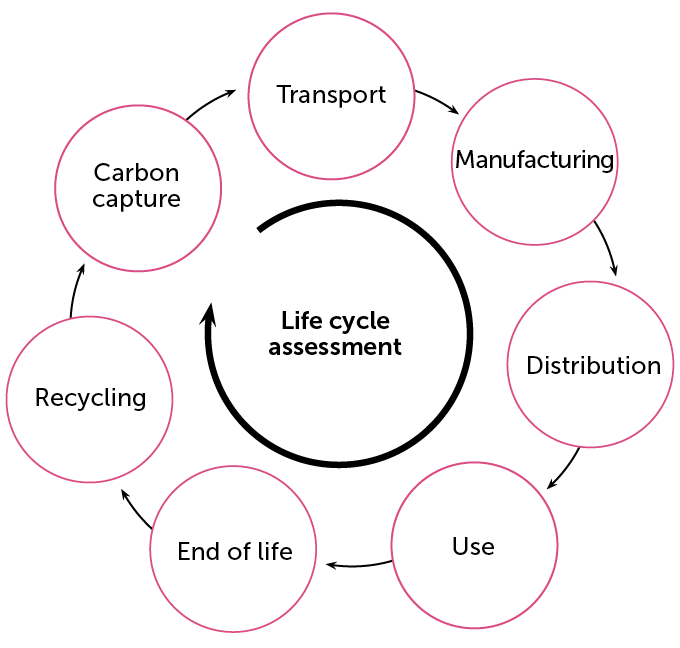Today, you can buy a pair of sneakers partially made from carbon dioxide pulled out of the atmosphere. But measuring the carbon-reduction benefits of making that pair of sneakers with CO2 is complex. There’s the fossil fuel that stayed in the ground, a definite carbon savings. But what about the energy cost of cooling the CO2 into liquid form and transporting it to a production facility? And what about when your kid outgrows the shoes in six months and they can’t be recycled into a new product because those systems aren’t in place yet?
As companies try to reduce their carbon footprint, many are doing life cycle assessments to quantify the full carbon cost of products, from procurement of materials to energy use in manufacturing to product transport to user behavior and end-of-life disposal. It’s a mind-bogglingly difficult metric, but such bean-counting is needed to hold the planet to a livable temperature, says low-carbon systems expert Andrea Ramirez Ramirez of the Delft University of Technology in the Netherlands.

Sign Up For the Latest from Science News
Headlines and summaries of the latest Science News articles, delivered to your inbox
Client key* E-mail Address* Go
Thank you for signing up!
There was a problem signing you up.
Carbon accounting is easy to get wrong, she says. Differences in starting points for determining a product’s “lifetime” or assumptions about the energy sources can all affect the math.
Carbon use can be reduced at many points along the production chain—by using renewable energy in the manufacturing process, for instance, or by adding atmospheric CO2 to the product. But if other points along the chain are energy-intensive or emit CO2, she notes, the final tally may show a positive rather than a negative number.
A product is carbon negative only when its production actually removes carbon from the environment, temporarily or permanently. The Global CO2 Initiative, with European and American universities, has created a set of LCA guidelines to standardize measurement so that carbon accounting is consistent and terms such as “carbon neutral” or “carbon negative” have a verifiable meaning.
Doing the carbon math
Life cycle assessments are an attempt to measure the carbon costs of each step of the production, transport, use and disposal or recycling of a product.
 C. ChangC. Chang Source: CIC Energigune
C. ChangC. Chang Source: CIC Energigune
In the rush to create products that can be touted as fighting climate change, however, some firms have been accused of “greenwashing” – making products or companies appear more environmentally friendly than they really are. Examples of greenwashing, according to a March 2022 analysis by mechanical engineers Grant Faber and Volker Sick of the University of Michigan in Ann Arbor include labeling plastic garbage bags as recyclable when their whole purpose is to be thrown away; using labels such as “eco-friendly” or “100% Natural” without official certification; and claiming a better carbon footprint without acknowledging the existence of even better choices. An example would be “fuel-efficient” sport utility vehicles, which are only fuel efficient when compared with other SUVs rather than with smaller cars, public transit or bicycles.
Good LCA analysis, Sick says, can distinguish companies that are carbon-friendly in name only, from those that are truly helping the world clear the air.

